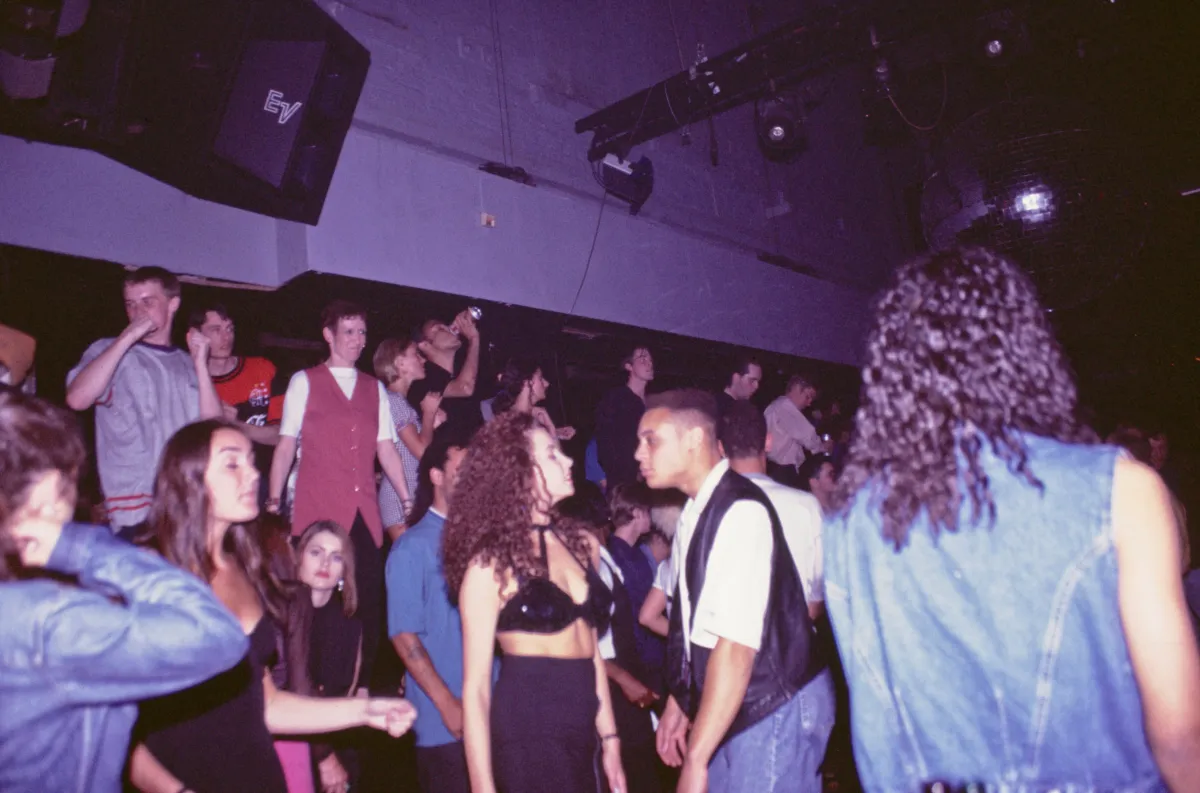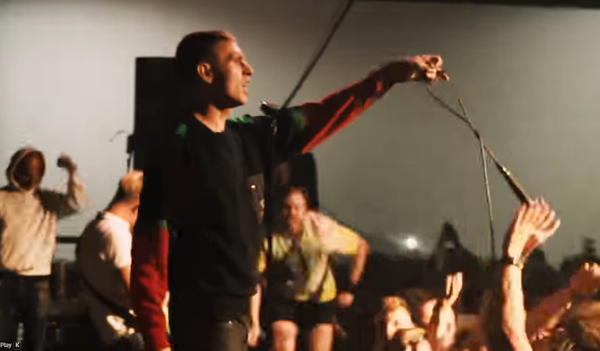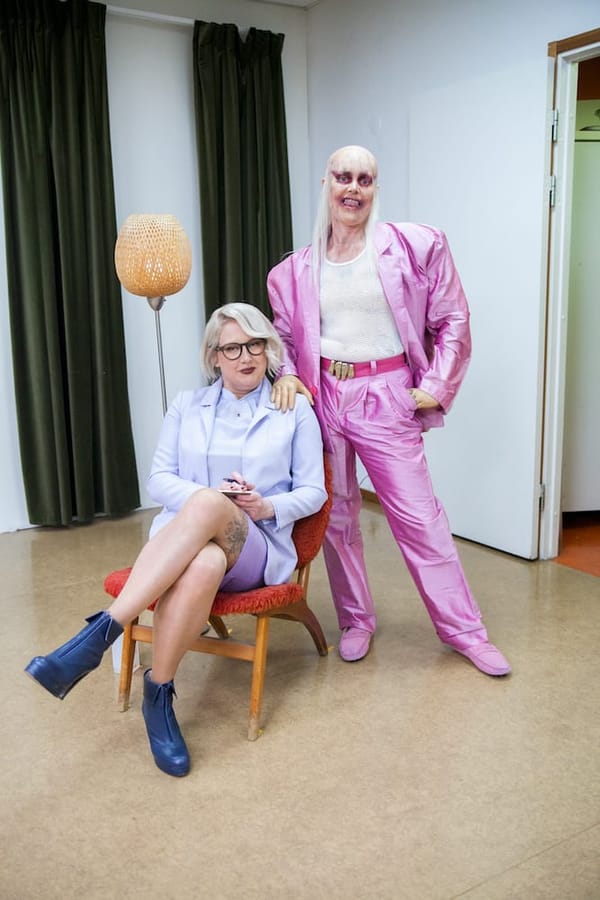The children yearn for the Hacienda

When I teach my Intro to Media Studies course, I have a taster week for cultural studies centering on identity, representation, and music. I structure the class to have regular screenings of something or other, and I pair this week with the BBC's 2022 documentary on the Hacienda club.
Unreal. The production company took the video down shortly after I posted this. What a stupid disaster.
For those unfamiliar, the Hacienda was a night club in Manchester which opened in 1982 and was founded by Factory Records. It started as a live venue before becoming the epicenter of rave culture. Then everyone did a ton of drugs, people died, and it closed.
The 2022 entry in the hagiographies of the Hacienda stands out because it makes a solid effort to tell it as a story which isn't just about New Order and Happy Mondays but about the full constellation of people who showed up to make it what it was: Black people, women, and queer folks, in addition to the de rigeur white guys. I like this because it gestures toward the new culture brewed at the Hacienda being the result of a melding of cultures rather than the usual story of New Order goes to NYC > New Order comes back having heard new sounds > magic (that's in there, too, because the story of the Hacienda is also the story of Joy Division and New Order, but that's not the entirety).
Is the story a little romantic? Sure, and Jack Shamash, who was there, says it was really just a club which closed and we should all just move on.
Fine as it goes, but the documentary, which I've shown to three classes now, hits my students. They want to go there because places like the Hacienda are like hen's teeth. We always discuss. Who would want to go there? Almost all hands go up. Why? They were making something. Diverse people mostly getting along to make something greater than the sum of their parts. No phones. Music should be communal.
They also have a keen sense for why they don't really have their own Hacienda when I ask them where it went. Today, one student said they tried to start something at a local queer venue only to be told it wasn't going to make enough money. Another said they went to a different gay club and had their bottled water prices jacked up in real time because they were under 21.
I'm more than a little skeptical of the "no third spaces" argument as the sole explainer for why local culture is dying while loneliness spikes. Mostly I see it activated as a counter to the "it's the phones argument" by people just as addicted to their phones as everyone else (including me) is. It's handy. Gotta keep the tricorder at the ready.
But today's class really did zero on the third spaces argument and their examples moved me a bit. Clubs saying, after one event, it's not going to make enough money and enacting their own inflation while a 19 year old is sitting in front of them is monstrous behavior. And it stands against what building a community should be.
I know I just excoriated Gen X last night but that's about people my age as a mass body whose lameness has curdled into terrible politics and behavior. Not everyone and certainly not every idea. One of the ideas worth hanging onto is that communal creation is good. Making music is good. Dancing is good. Having a space, a real, physical space, is good, maybe the best thing of all.
Shamash is right. The Hacienda closed. It failed. The movement failed. Britain didn't turn into a postracial utopia. But that's precisely why it's so important and why every time I show it to young people it hits, why they want to talk about it: the imperfections reveal that it's work, not that it's futile.
There will be other clubs. There have been. And I told them that: the stuff you like right this second will disappear, someone younger will call you out of touch, the music will be corny. You won't remember half of it. But you will have a moment, or a series of moments, where you connect with people. If you're lucky. If you can find the space.
I closed by saying that as much as I like this documentary and the music is some of my favorite, it does feel hopelessly utopian. But also that we probably need our utopias and attempts at them, even if they ultimately fail.
We just won't find them online.




